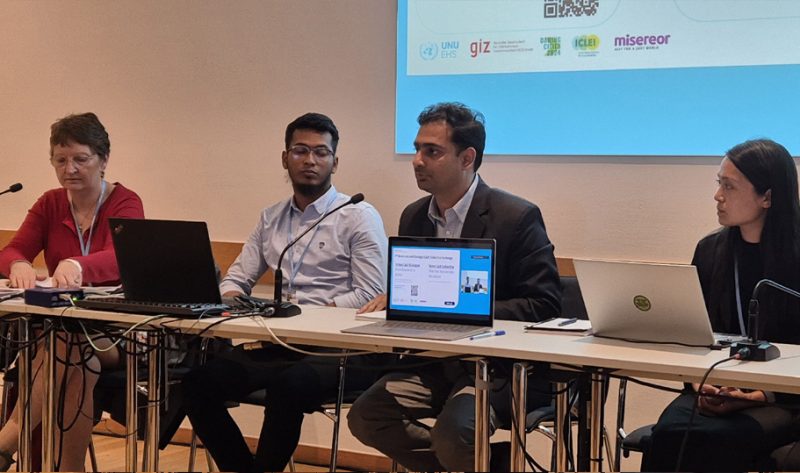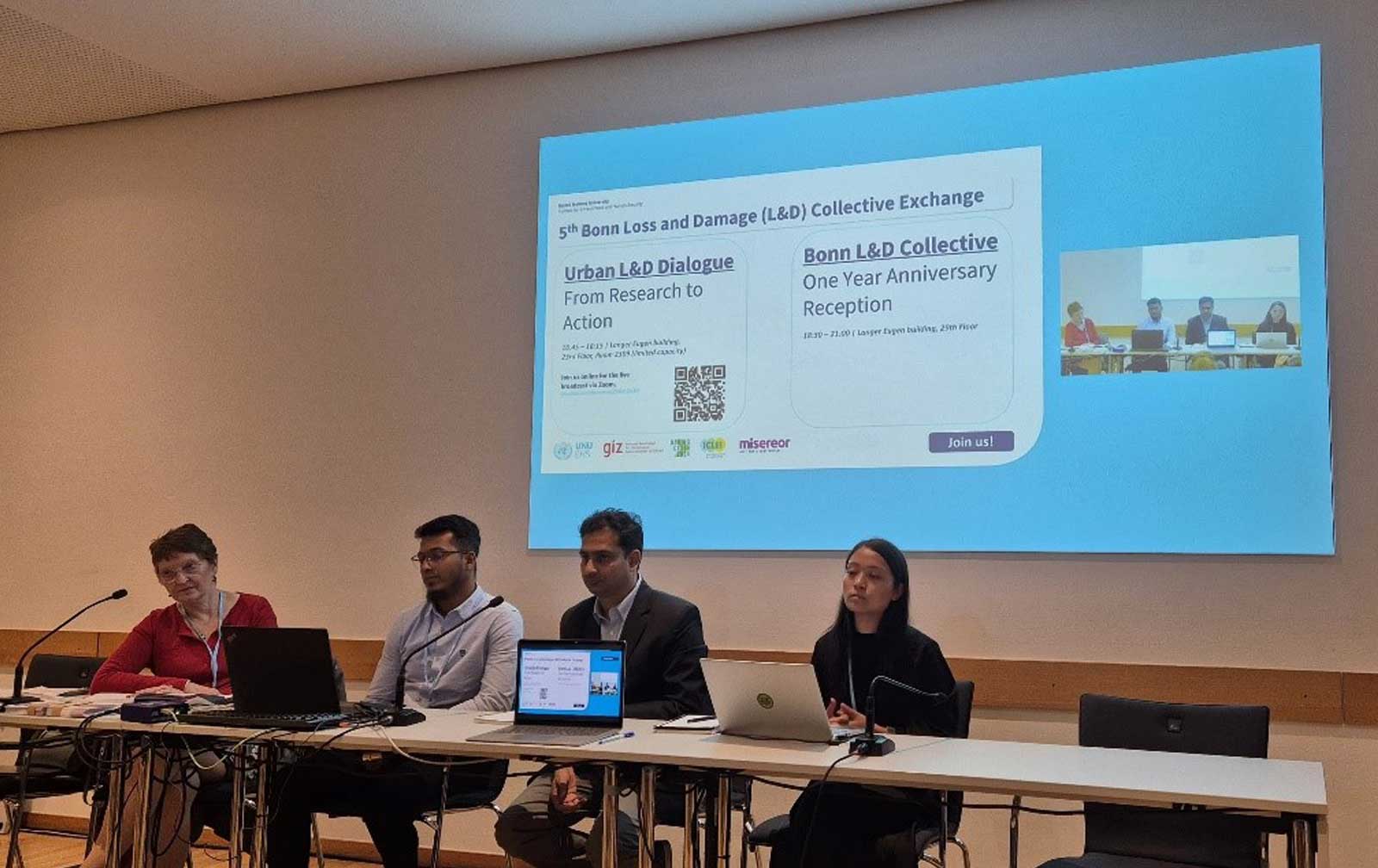Need for Integrated Urban and Climate Policies in South Asia: Key Takeaways from Urbanization and Climate Change Side Event at Bonn
This blog post provides an overview of the critical discussions held at the SB60 side event, highlighting the urgent need for integrated urban and climate policies to ensure resilient and inclusive urban societies in South Asia.

The nexus between urban growth and #ClimateChange significantly impacts major economic sectors such as energy use, transport, infrastructure, buildings, water use, and industries. Yet, international climate policy discourse is almost always only centred around the potential contributions of city settlements and urban areas to emissions reduction targets.
Given the growing importance of climate change and urbanization in shaping human society, and the dynamic nature of urbanization, the focus is slowly shifting towards understanding the interactions between the climate crisis and urban development.
On June 5, 2024, in Bonn, Germany, Climate Action Network South Asia (CANSA) together with Sustainable Development Policy Institute (SDPI), Pakistan, Clean Energy Nepal (CEN), (Nepal), Centre for Participatory Research and Development (CPRD), Bangladesh, and Misereor, organized a side event at the 60th Session of the Subsidiary Bodies (SB60) of the United Nations Framework Convention on Climate Change (UNFCCC).
This event was part of an ongoing regional program titled “Building Resilient & Inclusive Urban Societies in South Asia.” The aim of the program has been to highlight urban climate policy as an emerging area of work that could lead to transformative change towards #Sustainability. By raising the profile of cities as socio-economic levers for climate-inclusive transformation, this initiative seeks to integrate urban development with #ClimateResilience strategies.
The event was attended by negotiators, observers, and delegates to the #UNFCCC SB60. Mr. Nakul Sharma, Program Coordinator for Urbanization at CANSA, emphasized the growing urbanization trend, noting that over half of the world’s population currently lives in cities. This figure is projected to increase, with two-thirds of the global population expected to reside in urban areas by the middle of this century. The majority of this growth will come from Africa and Asia, particularly from countries like Pakistan, which is expected to have half of its population living in cities by 2025.
Dr. Abid Suleri, Executive Director of SDPI, Pakistan, highlighted the severe consequences of mismanaged urban growth, citing the 2022 floods that affected 33 million people and submerged a third of the country. Climate-induced extreme weather events, such as floods and droughts, are driving high rates of urbanization in Pakistan. These events have reduced crop yields, increased production costs, and caused income losses for farmers, pushing many towards urban areas in search of alternative livelihoods. This migration increases pressure on urban resources and systems.
Panelists from Bangladesh and Nepal emphasized the importance of inclusive urbanization and climate-sensitive city growth strategies in South Asia. Mr. Sheikh Nur Ataya from CPRD, Bangladesh, discussed innovative grassroots community financial models like the “Sustainable Loss and Damage Recovery Support (SLDRS)”. This model helps climate victims by providing blended finance (grants and concessional micro-credit) and capacity-building support, enabling them to utilize their entrepreneurial potential for sustainable recovery and resilience building.
Youth climate activist Ms. K.C. Shreya from CEN, Nepal, highlighted the devastating effects of increased glacial melting on Himalayan communities, including loss of life, livelihood, and shelter. These interventions underscored the urgent need for a transformative approach to urban planning and development.
Ms. Almuth Schauber, Desk Officer for Urbanization at Misereor, emphasized the necessity of a transformative approach to urban planning. This approach should be adaptable and prioritize system changes in how cities and urban areas are planned, built, and maintained. Whether interventions focus on #Adaptation or #Mitigation, a comprehensive re-evaluation of priorities is essential.
For more information, contact
By Nakul Sharma, Program Coordinator, CANSA
nakul@cansouthasia.net



#Adaptation #ClimateChange #ClimateResilience #Mitigation #Sustainability #UNFCCC





